A Round-up of 2019's Books in Apocalyptic and Millenarian Studies
Alastair Lockhart
In early 2019, I wrote a brief round-up of academic books with a primary focus on apocalyptic and millenarian movements and ideas published during the previous calendar year. In 2020, the same task has taken a little longer, reflecting perhaps the larger number of books that have come to my attention – 50 books compared to about 40 the year before – which may itself speak to a sustained and lively field of academic inquiry and wider interest.
Comparing this year's review with last year's, two striking differences standout: In 2018 there were some large-scale historical and thematic introductions to key strands in apocalyptic and millenarian studies – for example Timothy Beal's The Book of Revelation: A Biography (Princeton University Press) – which were not evident in the same way in 2019. And, in 2018 fewer books had a primary focus on representations of apocalypse or post-apocalypse in popular contemporary films, books, and other media, while this year's report includes nine or ten books in that category. (Though the latter may of course reflect my own growing awareness of the profile of this area of study as time has gone by.)
As last year, my intention has been to include new books which present critical research and analysis with a primary focus on apocalyptic and millenarian ideas and movements that I believe will be of interest to our readers – though one-or-two are written from a less abjuring or academic perspective. I have provided information about authors' institutional affiliations where available, and I would be glad to receive recommendations for titles that could be included in next year's round-up; suggestions to alockhart@censamm.org, please.
While their interests overlap with the broadly Abrahamic reference-points provided by the majority of books published in the field of apocalyptic and millenarian studies during 2019 – especially in the earlier part of the chronology - it is helpful to introduce two books, rather different from each other, which approach the domain with distinctive pre-modern case studies in view. Hunter Gardner (Associate Professor of Classics and Comparative Literature, University of South Carolina) examines narratives of disease and contagion in the work of Roman writers in Pestilence and the Body Politic in Latin Literature (Oxford University Press). The book explores the presentation of the relationship between individuals and the collective referencing of ideas about pre-historic Golden Ages and impending apocalyptic devastation in Livy, Vergil, Seneca and others. An ancient Norse perspective on apocalypse narratives is provided by Christopher Abram's (Associate Professor of English at the University of Notre Dame) study of Evergreen Ash: Ecology and Catastrophe in Old Norse Myth and Literature (University of Virginia Press). The book argues that Ragnarok is the story of ecological collapse reflecting the times and context of the early Icelanders with lessons for the present Anthropocene era.
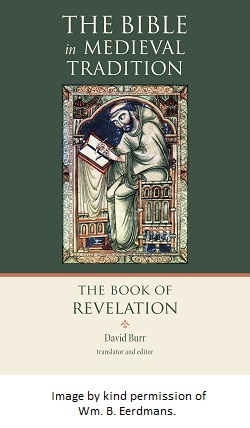 Amongst those books approaching the topic from a more conventional Abrahamic pathway, though in distinctive ways, two books seek to excavate the ancient roots of biblical sources. Christopher Hays (Professor of Ancient Near Eastern Studies, Fuller Theological Seminary) offers an historical and cultural analysis of Isaiah 24-28 to draw out ancient cognates for its imagery of divine feasting and death conquering. On the basis of his account, Hays argues for a non-apocalyptic interpretation of the text in The Origins of Isaiah 24-27: Josiah’s Festival Scroll for the Fall of Assyria (Cambridge University Press). The link between the Hebrew Bible and ancient Near Eastern sea myth is explored by Paul K.-K. Cho (Assistant Professor of Hebrew Bible, Wesley Theological Seminary) in Myth, History, and Metaphor in the Hebrew Bible (Cambridge University Press). Analysing the fragments of sea myth contained in the Hebrew Bible, the book includes a chapter on 'sea myth and eschaton'. Taking a more prospective viewpoint, Age Sigvartsen (Dozent of Old Testament, Theologische Hochschule Friedensau) has published two volumes in the Jewish and Christian Texts Series with Bloomsbury Afterlife and Resurrection Beliefs in the Apocrypha and Apocalyptic Literature and Afterlife and Resurrection Beliefs in the Pseudepigrapha. Each book offers a reading of relevant resurrection passages, suggesting little evidence of systematic development between life-after-death beliefs. And, with a focus on biblical background, a collected volume edited by Antti Laato (Professor of Hebrew Bible at Abo Akedemi University) Understanding the Spiritual Meaning of Jerusalem in Three Abrahamic Religions (Brill), emerging from a symposium on Jerusalem held at Åbo Akademi University in 2015, provides an assessment of the historical, social, and theological factors contributing to Jerusalem's status as the holy city for three major world religions.
Amongst those books approaching the topic from a more conventional Abrahamic pathway, though in distinctive ways, two books seek to excavate the ancient roots of biblical sources. Christopher Hays (Professor of Ancient Near Eastern Studies, Fuller Theological Seminary) offers an historical and cultural analysis of Isaiah 24-28 to draw out ancient cognates for its imagery of divine feasting and death conquering. On the basis of his account, Hays argues for a non-apocalyptic interpretation of the text in The Origins of Isaiah 24-27: Josiah’s Festival Scroll for the Fall of Assyria (Cambridge University Press). The link between the Hebrew Bible and ancient Near Eastern sea myth is explored by Paul K.-K. Cho (Assistant Professor of Hebrew Bible, Wesley Theological Seminary) in Myth, History, and Metaphor in the Hebrew Bible (Cambridge University Press). Analysing the fragments of sea myth contained in the Hebrew Bible, the book includes a chapter on 'sea myth and eschaton'. Taking a more prospective viewpoint, Age Sigvartsen (Dozent of Old Testament, Theologische Hochschule Friedensau) has published two volumes in the Jewish and Christian Texts Series with Bloomsbury Afterlife and Resurrection Beliefs in the Apocrypha and Apocalyptic Literature and Afterlife and Resurrection Beliefs in the Pseudepigrapha. Each book offers a reading of relevant resurrection passages, suggesting little evidence of systematic development between life-after-death beliefs. And, with a focus on biblical background, a collected volume edited by Antti Laato (Professor of Hebrew Bible at Abo Akedemi University) Understanding the Spiritual Meaning of Jerusalem in Three Abrahamic Religions (Brill), emerging from a symposium on Jerusalem held at Åbo Akademi University in 2015, provides an assessment of the historical, social, and theological factors contributing to Jerusalem's status as the holy city for three major world religions.
Publications with a New Testament or early Christian focus include John the Theologian and his Paschal Gospel: A Prologue to Theology (Oxford University Press), by John Behr (Fr Georges Florovsky Distinguished Professor of Patristics, St Vladimir's Seminary, and Metropolitan Kallistos Chair of Orthodox Theology, Vrije Universiteit of Amsterdam). The book takes an interdisciplinary approach to the Gospel of John to explore the relationship between the Incarnation and the Passion of Christ, with reference to the interpretation of apocalyptic aspects of the Gospel. David Du Toit (Professor for New Testament, Friedrich-Alexander-University Erlangen), Christine Gerber (Professor for New Testament Studies, University of Hamburg), and Christiane Zimmerman (Professor for New Testament, Christian-Albrechts-University Kiel) edit a volume in honour of New Testament scholar Prof. Cilliers Breytenbach (Humboldt-Universität Berlin). The contributions to Sōtēria: Salvation in Early Christianity and Antiquity (Brill) examine the construction of concepts of salvation in early Christianity and its Jewish and Graeco-Roman contexts. The 2016 Radbound Prestige Lectures by Jörg Frey (Professor of New Testament, University of Zurich) offering a new perspective on 2 Peter suggesting it is dependent on the Apocalypse of Peter, are presented with responses from prominent scholars in 2 Peter and the Apocalypse of Peter: Towards a New Perspective (Brill) - edited by Jörg Frey, Matthijs den Dulk (Assistant Professor of Biblical Studies, Radboud University Nijmegen) and Jan G van der Watt (Emeritus Professor of New Testament, Radboud University Nijmegen). The Shepherd of Hermas within its Pauline literary context is the theme of The Shepherd of Hermas and the Pauline Legacy (Brill) by Jonathan E. Soyars (Tutor in New Testament Language, Literature and Theology, Westminster College, Cambridge). Soyars uncovers evidence of the adoption, adaptation and synthesis of Pauline material in the text, presenting Hermas as a Pauline interpreter. Finally, amongst the New Testament period publications, situating the source in the context of ancient visual and rhetorical culture, Andrew R. Guffey (visiting instructor of New Testament at the Lutheran School of Theology at Chicago), seeks to address an identified lack of scholarly awareness of the 'visuality' of the book of Revelation in The Book of Revelation and the Visual Culture of Asia Minor: A Concurrence of Images (Rowman & Littlefield).
The medieval legacy of biblical interpretation forms the focus for a number of publications over the year. Also addressing Revelation, David Burr's (Professor Emeritus of History, Virginia Tech) contribution to the Bible in Medieval Tradition series, The Book of Revelation (Wm. B. Eerdmans), concentrates on the mendicant contribution to the interpretation of the book, and examines developing interpretive strategies against new university institutions, scholasticism, and expanding papal authority. Excerpts from thirteenth-century commentaries on the Apocalylpse of John by Būlus al-Būshī and Ibn Kātib Qayṣar are presented in English by Stephen J. Davis (Professor of Religious Studies, Yale University), T.C. Schmidt (PhD candidate, Yale University) and Shawqi Talia (Lecturer in Semitic Languages, Catholic University of America), in Revelation 1-3 in Christian Arabic Commentary: John's First Vision and the Letters to the Seven Churches (Fordham University Press). The first in a new series - Christian Arabic Texts in Translation – the book includes a scholarly introduction and critical annotations.
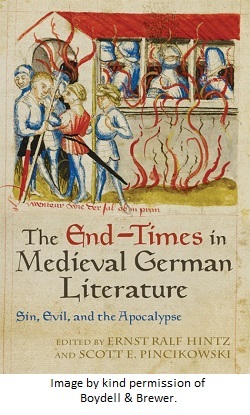 Publications with a medieval intellectual and social history focus on apocalypticism include The End-Times in Medieval German Literature: Sin, Evil, and the Apocalypse (Boydell & Brewer/Camden House), edited by Ernst Ralf Hintz (Professor of German and Medieval Studies, Truman State University) and Scott E. Pinicikowski (Professor of German at Hood College), which explores the ways in which end times were understood in medieval Germany. The End of the World in Medieval Thought and Spirituality (Palgrave Macmillan), edited by Eric Knibbs (Monumenta Germaniae Historica, Munich), Jessica A. Boon (Associate Professor of Religious Studies at UNC-Chapel Hill), and Erica Gelser (independent scholar), offers a collection of essays on the theme of the apocalypse and the end of the world in the Middle Ages and Early Modernity. The three sections are themed around 'Gendering the Apocalypse', 'Apocalyptic Theory and Exegesis', and 'The Eschaton in Political, Liturgical, and Literary Contexts'. Analysing the context and ramifications of the capture of Jerusalem by the European soldiers of the First Crusade in 1099, Nebuchadnezzar’s Dream: The Crusades, Apocalyptic Prophecy, and the End of History (Oxford University Press) by Jay Rubenstein (Riggsby Director of the Marco Institute for Medieval and Renaissance Studies and Alvin and Sally Beaman Professor of History, University of Tennessee) examines accounts of the dream of Nebuchadnezzar as expressions of a new medieval European understanding of the apocalypse as more than prophecy, rather as an expected event.
Publications with a medieval intellectual and social history focus on apocalypticism include The End-Times in Medieval German Literature: Sin, Evil, and the Apocalypse (Boydell & Brewer/Camden House), edited by Ernst Ralf Hintz (Professor of German and Medieval Studies, Truman State University) and Scott E. Pinicikowski (Professor of German at Hood College), which explores the ways in which end times were understood in medieval Germany. The End of the World in Medieval Thought and Spirituality (Palgrave Macmillan), edited by Eric Knibbs (Monumenta Germaniae Historica, Munich), Jessica A. Boon (Associate Professor of Religious Studies at UNC-Chapel Hill), and Erica Gelser (independent scholar), offers a collection of essays on the theme of the apocalypse and the end of the world in the Middle Ages and Early Modernity. The three sections are themed around 'Gendering the Apocalypse', 'Apocalyptic Theory and Exegesis', and 'The Eschaton in Political, Liturgical, and Literary Contexts'. Analysing the context and ramifications of the capture of Jerusalem by the European soldiers of the First Crusade in 1099, Nebuchadnezzar’s Dream: The Crusades, Apocalyptic Prophecy, and the End of History (Oxford University Press) by Jay Rubenstein (Riggsby Director of the Marco Institute for Medieval and Renaissance Studies and Alvin and Sally Beaman Professor of History, University of Tennessee) examines accounts of the dream of Nebuchadnezzar as expressions of a new medieval European understanding of the apocalypse as more than prophecy, rather as an expected event.
Two books take a long historical perspective on apocalyptic and millenarian themes, and move the discussion into the modern era. Waller Newell (Professor of Political Science and Philosophy, Carleton University), presents a long-range history of tyranny from Homeric warriors to Al Qaeda in Tyrants: A History of Power, Injustice, and Terror (Cambridge University Press). The final part of the book studies a transformation dating from the French Revolution under the title 'Millenarian Tyranny from Robespierre to Al Qaeda'. And a long view of the relationship between ontology and history, from Gregory of Nyssa to Joseph Ratzinger, is offered in Between Being and Time: From Ontology to Eschatology (Lexington Books/Fortress Academic) edited by Andrew T.J. Kaethler (Academic Dean and Assistant Professor of Theology, Catholic Pacific College) and Sotiris Mitralexis (Assistant Professor of Philosophy at the City University of Istanbul).
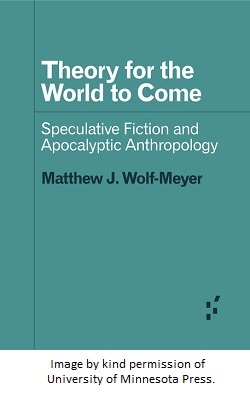 More tightly focussed studies in the modern and early-modern periods pay particular attention to distinct phases of transition or the careers of prismatic individuals. Thus, a distinctive reflection on the context and crises of the reign of Elizabeth I, including discussion of apocalyptic expectations amongst the English people of the period, is provided by Donald Stump's (Professor of English at Saint Louis University) account of Spenser’s Heavenly Elizabeth: Providential History in The Faerie Queene (Palgrave Macmillan). Leigh T.I. Penman (research fellow at the Institute for Advanced Studies in the Humanities at the University of Queensland) investigates Lutheran responses to expectations of future felicity – regarded as heresy because they contravened an inherent pessimistic apocalypticism within the confession - between 1570 and 1630 in Hope and Heresy: The Problem of Chiliasm in Lutheran Confessional Culture, 1570-1630 (Springer Netherlands). And, an account of the career of the 16th century alchemist and prophet at the court of the Duke of Braunschweig-Wolfenbüttel, Anna Zieglerin, is presented by Tara Nummedal (Associate Professor of History at Brown University) in Anna Zieglerin and the Lion’s Blood: Alchemy and End times in Reformation Germany (University of Pennsylvania Press). Casting herself as a Protestant Virgin Mary, Anna Zieglerin, developed an apocalyptic eschatology which promised spiritual and material profit.
More tightly focussed studies in the modern and early-modern periods pay particular attention to distinct phases of transition or the careers of prismatic individuals. Thus, a distinctive reflection on the context and crises of the reign of Elizabeth I, including discussion of apocalyptic expectations amongst the English people of the period, is provided by Donald Stump's (Professor of English at Saint Louis University) account of Spenser’s Heavenly Elizabeth: Providential History in The Faerie Queene (Palgrave Macmillan). Leigh T.I. Penman (research fellow at the Institute for Advanced Studies in the Humanities at the University of Queensland) investigates Lutheran responses to expectations of future felicity – regarded as heresy because they contravened an inherent pessimistic apocalypticism within the confession - between 1570 and 1630 in Hope and Heresy: The Problem of Chiliasm in Lutheran Confessional Culture, 1570-1630 (Springer Netherlands). And, an account of the career of the 16th century alchemist and prophet at the court of the Duke of Braunschweig-Wolfenbüttel, Anna Zieglerin, is presented by Tara Nummedal (Associate Professor of History at Brown University) in Anna Zieglerin and the Lion’s Blood: Alchemy and End times in Reformation Germany (University of Pennsylvania Press). Casting herself as a Protestant Virgin Mary, Anna Zieglerin, developed an apocalyptic eschatology which promised spiritual and material profit.
Arguing that there were two basic interpretations of a the little-studied phrase 'new heavens and earth' - one approaching it literally and another understanding it metaphorically - John H. Duff (Professor of Historical and Systematic Theology at Cornerstone University) discusses its interpretations in seventeenth-century England in 'A Knot Worth Unloosing': The Interpretation of the New Heavens and Earth in Seventeenth Century England (Vandenhoeck & Ruprecht). Rachel Cope (Associate Professor of Church History at Brigham Young University) and Zachary McLeod Hutchins (Assistant Professor of English at Colorado State University) bring together the extant known texts by Elizabeth Webb, a Quaker missionary in England and America in the 17th and 18th centuries, who used the book of Revelation as an interpretive framework for American history and presented the colonisation of New England as a sign of the end times in The Writings of Elizabeth Webb: A Quaker Missionary in America, 1697-1726 (Penn State University Press).
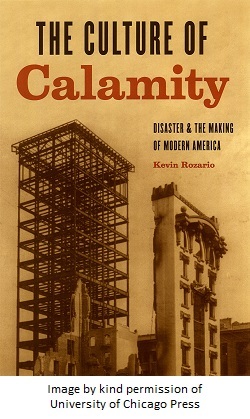 The roots of characteristically late-modern forms of apocalyptic and millenarian thinking are examined in three distinctive historical case studies. In Romantic Revelations: Visions of Post-Apocalyptic Life and Hope in the Anthropocene (University of Toronto Press), Chris Washington (Assistant Professor of English at Francis Marion University) explores the theme of 'post-apocalyptic Romanticism' at the beginning of the Anthropocene. The book develops the idea that key Romantic thinkers derived an optimistic vision in response to 'the year without a summer', 1816. Roland Boer (Xin Ao Distinguished Overseas Professor in Philosophy at Renmin University of China, Conjoint Professor School of Humanities and Social Sciences, University of Newcastle, Australia) analyses the long history of Christian Communism, especially in Russia, China, and Korea, with particular attention to the themes of communal practice and revolutionary action in Red Theology: On the Christian Communist Tradition (Brill). The Culture of Calamity: Disaster and the Making of Modern America (University of Chicago Press) by Kevin Rozario (Associate Professor in American Studies at Smith College), seeks to uncover the history of responses to disaster in America from the Puritans to the 'Age of Terror' and the present day popular imaginary of disasters and the apocalyptic.
The roots of characteristically late-modern forms of apocalyptic and millenarian thinking are examined in three distinctive historical case studies. In Romantic Revelations: Visions of Post-Apocalyptic Life and Hope in the Anthropocene (University of Toronto Press), Chris Washington (Assistant Professor of English at Francis Marion University) explores the theme of 'post-apocalyptic Romanticism' at the beginning of the Anthropocene. The book develops the idea that key Romantic thinkers derived an optimistic vision in response to 'the year without a summer', 1816. Roland Boer (Xin Ao Distinguished Overseas Professor in Philosophy at Renmin University of China, Conjoint Professor School of Humanities and Social Sciences, University of Newcastle, Australia) analyses the long history of Christian Communism, especially in Russia, China, and Korea, with particular attention to the themes of communal practice and revolutionary action in Red Theology: On the Christian Communist Tradition (Brill). The Culture of Calamity: Disaster and the Making of Modern America (University of Chicago Press) by Kevin Rozario (Associate Professor in American Studies at Smith College), seeks to uncover the history of responses to disaster in America from the Puritans to the 'Age of Terror' and the present day popular imaginary of disasters and the apocalyptic.
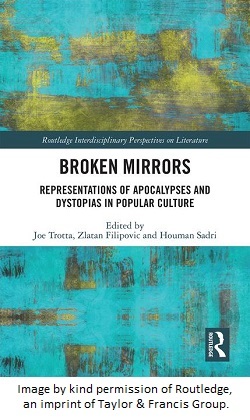 The place of Israel is a significant reference point in the two of the books with a 20th century focus. An unusual psychological perspective is provided by Routledge which has produced two previously unpublished manuscripts as a two volume set edited by Jungian psychotherapist Ann Conrad Lammers, The Roots of Jewish Consciousness, written by the analytical psychologist Erich Neumann (1905-1960) during the 1930s and 1940s. The first of these, Volume One: Revelation and Apocalypse, on the theme of the tension between earth and YHWH, was completed by 1940 when Neumann had completed Jungian training and fled Berlin to settle in Tel Aviv. In Covenant Brothers: Evangelicals, Jews, and U.S.-Israeli Relations (University of Pennsylvania Press), Daniel Hummel (postdoctoral fellow in the History Department at the University of Wisconsin-Madison) presents an account of the rise of evangelical Christian Zionism in American politics, Israeli diplomacy, and international relations after the establishment of the state of Israel in 1948. The account seeks to move the focus from an American evangelical apocalyptic agenda, to emphasize instead efforts by Christians and Jews to mobilize evangelical support for Israel. Zachary Smith (University of Georgia) discusses American responses to the Great War in an examination of white American exceptionalism and 'missionary Anglo-Saxonism' in Age of Fear: Othering and American Identity during World War I (Johns Hopkins University Press). The book examines American understandings of a precarious duty to spread Christianity, rooted in apocalyptic thinking emerging from the Great Awakening of the early 1800s.
The place of Israel is a significant reference point in the two of the books with a 20th century focus. An unusual psychological perspective is provided by Routledge which has produced two previously unpublished manuscripts as a two volume set edited by Jungian psychotherapist Ann Conrad Lammers, The Roots of Jewish Consciousness, written by the analytical psychologist Erich Neumann (1905-1960) during the 1930s and 1940s. The first of these, Volume One: Revelation and Apocalypse, on the theme of the tension between earth and YHWH, was completed by 1940 when Neumann had completed Jungian training and fled Berlin to settle in Tel Aviv. In Covenant Brothers: Evangelicals, Jews, and U.S.-Israeli Relations (University of Pennsylvania Press), Daniel Hummel (postdoctoral fellow in the History Department at the University of Wisconsin-Madison) presents an account of the rise of evangelical Christian Zionism in American politics, Israeli diplomacy, and international relations after the establishment of the state of Israel in 1948. The account seeks to move the focus from an American evangelical apocalyptic agenda, to emphasize instead efforts by Christians and Jews to mobilize evangelical support for Israel. Zachary Smith (University of Georgia) discusses American responses to the Great War in an examination of white American exceptionalism and 'missionary Anglo-Saxonism' in Age of Fear: Othering and American Identity during World War I (Johns Hopkins University Press). The book examines American understandings of a precarious duty to spread Christianity, rooted in apocalyptic thinking emerging from the Great Awakening of the early 1800s.
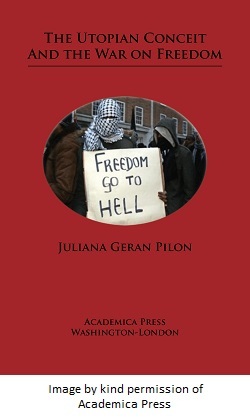 A distinctive philosophical approach to apocalyptic themes is presented by Thomas Lynch (Senior Lecturer in Philosophy of Religion at the University of Chichester) in Apocalyptic Political Theology: Hegel, Taubes and Malabou (Bloomsbury). Lynch develops an apocalyptic political theology articulating Jacob Taubes and Catherine Malabou with Hegel's philosophy of religion analysed for its implicit political theology. And The Oxford Handbook of Karl Barth (Oxford University Press), edited by Paul Dafydd Jones (Associate Professor of Religious Studies, University of Virginia) and Paul Nimmo (Professor of Systematic Theology, University of Aberdeen) stands out as a comprehensive scholarly account of the 20th century theologian Karl Barth. Over 700+ pages in 42 chapters, the Handbook provides a prismatic round-up of the life and work of the apocalyptically inflected theologian.
A distinctive philosophical approach to apocalyptic themes is presented by Thomas Lynch (Senior Lecturer in Philosophy of Religion at the University of Chichester) in Apocalyptic Political Theology: Hegel, Taubes and Malabou (Bloomsbury). Lynch develops an apocalyptic political theology articulating Jacob Taubes and Catherine Malabou with Hegel's philosophy of religion analysed for its implicit political theology. And The Oxford Handbook of Karl Barth (Oxford University Press), edited by Paul Dafydd Jones (Associate Professor of Religious Studies, University of Virginia) and Paul Nimmo (Professor of Systematic Theology, University of Aberdeen) stands out as a comprehensive scholarly account of the 20th century theologian Karl Barth. Over 700+ pages in 42 chapters, the Handbook provides a prismatic round-up of the life and work of the apocalyptically inflected theologian.
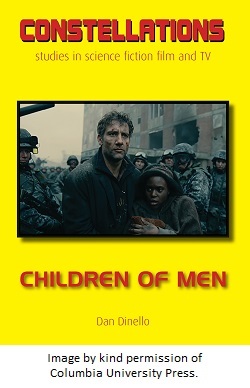 2019 saw a lively strand of publications examining contemporary representations of apocalypse and post-apocalyptic worlds in films, books, and other popular cultural forms. In Theory for the World to Come: Speculative Fiction and Apocalyptic Anthropology (University of Minnesota Press), Matthew Wolf-Meyer (Associate Professor of Anthropology at Binghamtpon University) draws on popular speculative fiction, films, and other cultural outputs to examine social theory in a critical perspective. An interdisciplinary approach to recent expressions of dystopian and apocalyptic themes in literature, art, video games, and other media is offered in Broken Mirrors: Representations of Apocalypses and Dystopias in Popular Culture (Routledge), presented by scholars from the University of Gothenburg, Sweden, Joe Trotta (Associate Professor of English Linguistics), Zlatan Filipovic (Associate Professor in English and Comparative Literature), and Houman Sadri (PhD candidate and teacher of English Literature). Contributions include an account of 'Russian Cosmism and the Construction of an Immor(t)al Utopia' by Emelie Jonsson (PhD student), 'Hopeful Dystopias? Figures of Hope in the Brazilian Science Fiction Series 3%' by Zlatan Filipovic, and 'Post-apocalyptic Play: Representations of the End of the City in Video Games' by Gabriela Mercado (PhD student), amongst others. Another publication taking in a wide range of media is Exhaustion and Regeneration in Post-Millennial North-American Literature and Culture (Peter Lang) edited by Julia Nikiel and Izabella Kimak (both based in the Department of American Literature and Culture at Maria-Curie Skłodowska University in Lublin). Contributions to the volume take in literary works, films, TV programs and visual art with a focus on contemporary imagination and representations of beginnings and ends. For example, '"We Are the Walking Dead," but "We Ain't Them": Cognitive Exhaustion and the Figure of the Zombie in AMC's The Walking Dead' by Maxi Albrecht (Freie Universität Berlin), and 'Permaculture and Utopian Regeneration in Starhawk's City of Refuge' by Anna Gilarek (Jan Kochanowski University).
2019 saw a lively strand of publications examining contemporary representations of apocalypse and post-apocalyptic worlds in films, books, and other popular cultural forms. In Theory for the World to Come: Speculative Fiction and Apocalyptic Anthropology (University of Minnesota Press), Matthew Wolf-Meyer (Associate Professor of Anthropology at Binghamtpon University) draws on popular speculative fiction, films, and other cultural outputs to examine social theory in a critical perspective. An interdisciplinary approach to recent expressions of dystopian and apocalyptic themes in literature, art, video games, and other media is offered in Broken Mirrors: Representations of Apocalypses and Dystopias in Popular Culture (Routledge), presented by scholars from the University of Gothenburg, Sweden, Joe Trotta (Associate Professor of English Linguistics), Zlatan Filipovic (Associate Professor in English and Comparative Literature), and Houman Sadri (PhD candidate and teacher of English Literature). Contributions include an account of 'Russian Cosmism and the Construction of an Immor(t)al Utopia' by Emelie Jonsson (PhD student), 'Hopeful Dystopias? Figures of Hope in the Brazilian Science Fiction Series 3%' by Zlatan Filipovic, and 'Post-apocalyptic Play: Representations of the End of the City in Video Games' by Gabriela Mercado (PhD student), amongst others. Another publication taking in a wide range of media is Exhaustion and Regeneration in Post-Millennial North-American Literature and Culture (Peter Lang) edited by Julia Nikiel and Izabella Kimak (both based in the Department of American Literature and Culture at Maria-Curie Skłodowska University in Lublin). Contributions to the volume take in literary works, films, TV programs and visual art with a focus on contemporary imagination and representations of beginnings and ends. For example, '"We Are the Walking Dead," but "We Ain't Them": Cognitive Exhaustion and the Figure of the Zombie in AMC's The Walking Dead' by Maxi Albrecht (Freie Universität Berlin), and 'Permaculture and Utopian Regeneration in Starhawk's City of Refuge' by Anna Gilarek (Jan Kochanowski University).
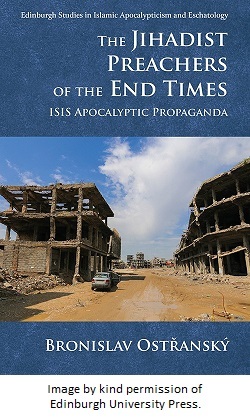 Reflecting on The Road, I Am Legend, 28 Days Later and other films in the genre, Undead Ends: Stories of Apocalypse (Rutgers University Press) by Sarah Trimble (University of Toronto), examines modern British and American apocalypse films as framings for ideas about humanness, endings and new beginnings. A focussed examination of apocalyptic themes in popular culture is presented in Susanne Kord's (Professor of German, University College London) 12 Monkeys (Columbia University Press) which analyses Terry Gilliam's 1995 film in the context of post-apocalyptic movies. Similarly, Dan Dinello (Professor Emeritus at Columbia College Chicago) analyses the themes of the film Children of Men (Columbia University Press) in ideological, psychological and philosophical perspectives. Mick Broderick (Associate Professor of Media Analysis at Murdoch University) and Katie Ellis (Associate Professor in Internet Studies and Director of the Centre for Culture and Technology at Curtin University), examine the relationship of disability and trauma in the Mad Max films in Trauma and Disability in Mad Max: Beyond the Road Warrior's Fury (Palgrave Macmillan). Books with a literary focus include Utopia and the Contemporary British Novel (Cambridge University Press), where Caroline Edwards examines 'fictions of the not yet' within the framework of the philosophical category of non-contemporaneity to uncover a strand of utopian imagination in current British literary works. And, in The Contemporary Post-Apocalyptic Novel: Critical Temporalities and the End Times (Bloomsbury), Diletta De Cristofaro (Teaching Fellow in Contemporary Literature at the University of Birmingham), focusses on the theme of time in the 21st-century post-apocalyptic novel as a challenge to traditional apocalyptic logic. Drawing on psychological theory and research in grief, trauma, and mental illness, Steven J. Kirsh (Professor of Psychology at State University of New York) examines parenting and attachment styles, and the potential outcomes of different caregiving techniques, in a hypothetical world overrun by zombies in Parenting in the Zombie Apocalypse: The Psychology of Raising Children in a Time of Horror (McFarland).
Reflecting on The Road, I Am Legend, 28 Days Later and other films in the genre, Undead Ends: Stories of Apocalypse (Rutgers University Press) by Sarah Trimble (University of Toronto), examines modern British and American apocalypse films as framings for ideas about humanness, endings and new beginnings. A focussed examination of apocalyptic themes in popular culture is presented in Susanne Kord's (Professor of German, University College London) 12 Monkeys (Columbia University Press) which analyses Terry Gilliam's 1995 film in the context of post-apocalyptic movies. Similarly, Dan Dinello (Professor Emeritus at Columbia College Chicago) analyses the themes of the film Children of Men (Columbia University Press) in ideological, psychological and philosophical perspectives. Mick Broderick (Associate Professor of Media Analysis at Murdoch University) and Katie Ellis (Associate Professor in Internet Studies and Director of the Centre for Culture and Technology at Curtin University), examine the relationship of disability and trauma in the Mad Max films in Trauma and Disability in Mad Max: Beyond the Road Warrior's Fury (Palgrave Macmillan). Books with a literary focus include Utopia and the Contemporary British Novel (Cambridge University Press), where Caroline Edwards examines 'fictions of the not yet' within the framework of the philosophical category of non-contemporaneity to uncover a strand of utopian imagination in current British literary works. And, in The Contemporary Post-Apocalyptic Novel: Critical Temporalities and the End Times (Bloomsbury), Diletta De Cristofaro (Teaching Fellow in Contemporary Literature at the University of Birmingham), focusses on the theme of time in the 21st-century post-apocalyptic novel as a challenge to traditional apocalyptic logic. Drawing on psychological theory and research in grief, trauma, and mental illness, Steven J. Kirsh (Professor of Psychology at State University of New York) examines parenting and attachment styles, and the potential outcomes of different caregiving techniques, in a hypothetical world overrun by zombies in Parenting in the Zombie Apocalypse: The Psychology of Raising Children in a Time of Horror (McFarland).
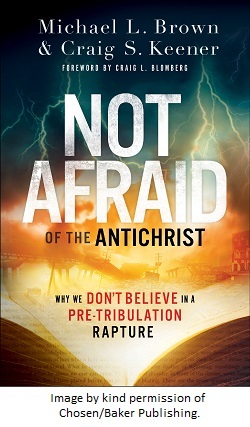 The second dominant strand in books seeking to engage in pressing current debates is one that refers to political, ethnic, and climate-change frameworks for apocalyptic and millenarian discourse. Juliana Geran Pilon (Senior Fellow at the Alexander Hamilton Institute for the Study of Western Civilization) presents a bold account of the origins of messianic and utopian thinking – critiqued as idealistic and hubristic - as the root of anti-capitalism and anti-Semitism in the contemporary world in The Utopian Conceit and the War on Freedom (Academica Press). An edited volume on the topic of Indigenous Perceptions of the End of the World: Creating a Cosmopolitics of Change (Palgrave Macmillan) is offered by Rosalyn Bold (Research Associate in the Centre for the Anthropology of Sustainability at University College London). The volume collects indigenous Latin American perspectives on climate change, consumption, cultural change, and related themes. And Ibigbolade S. Aderibigbe (Professor of Religion at the University of Georgia) offers an analysis of African eschatological beliefs within the contexts of indigenous worldviews and traditional heritage in Contextualizing Eschatology in African Cultural and Religious Beliefs (Routledge). The book offers an overview of African eschatologies and examines characteristic beliefs and practices in different African ethnic groups. In The Jihadist Preachers of the End Times: ISIS Apocalyptic Propaganda (Edinburgh University Press) Bronislav Ostřanský (Research Fellow at the Oriental Institute of the Czech Academy of Sciences), uses ISIS primary sources to examine the group’s propaganda, and in particular their use of apocalypticism, within the broader framework of contemporary Muslim thought.
The second dominant strand in books seeking to engage in pressing current debates is one that refers to political, ethnic, and climate-change frameworks for apocalyptic and millenarian discourse. Juliana Geran Pilon (Senior Fellow at the Alexander Hamilton Institute for the Study of Western Civilization) presents a bold account of the origins of messianic and utopian thinking – critiqued as idealistic and hubristic - as the root of anti-capitalism and anti-Semitism in the contemporary world in The Utopian Conceit and the War on Freedom (Academica Press). An edited volume on the topic of Indigenous Perceptions of the End of the World: Creating a Cosmopolitics of Change (Palgrave Macmillan) is offered by Rosalyn Bold (Research Associate in the Centre for the Anthropology of Sustainability at University College London). The volume collects indigenous Latin American perspectives on climate change, consumption, cultural change, and related themes. And Ibigbolade S. Aderibigbe (Professor of Religion at the University of Georgia) offers an analysis of African eschatological beliefs within the contexts of indigenous worldviews and traditional heritage in Contextualizing Eschatology in African Cultural and Religious Beliefs (Routledge). The book offers an overview of African eschatologies and examines characteristic beliefs and practices in different African ethnic groups. In The Jihadist Preachers of the End Times: ISIS Apocalyptic Propaganda (Edinburgh University Press) Bronislav Ostřanský (Research Fellow at the Oriental Institute of the Czech Academy of Sciences), uses ISIS primary sources to examine the group’s propaganda, and in particular their use of apocalypticism, within the broader framework of contemporary Muslim thought.
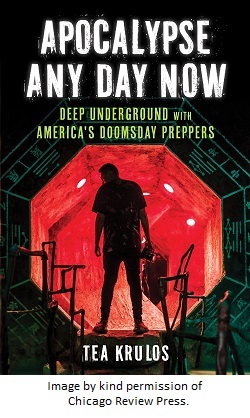 Having opened this review with two books approaching the old and ancient material through case-studies somewhat outside the main body of publications in the field, it is fitting to close by referring to three books approaching themes in apocalyptic and millenarian studies from perspectives which, in different ways, distinguish them from most of those discussed in this round-up. Though they are no less useful or interesting to readers of this website for that. Presented from an explicitly confessional perspective, Michael L. Brown (founder of the FIRE School of Ministry in Concord) and Craig S. Keener (Professor of Biblical Studies as Asbury Theological Seminary) examine the biblical basis for, and present a refutation of, common pre-tribulation rapture beliefs in Not Afraid of the Antichrist: Why We Don’t Believe in a Pre-Tribulation Rapture (Chosen/Baker Publishing). Taking a distinctive scientific standpoint in relation to global threats, The World's Worst Problems (Springer) by Walter Dodds (University Distinguished Professor of Biology at Kansas State University) identifies and categorizes the worst problems currently facing humanity – including hunger, disease and nuclear weapons amongst others - with indices of severity and threat level. Finally, a popular account of contemporary apocalyptically oriented movements is provided by Tea Krulos (freelance journalist and author) who describes his travels around America meeting different groups preparing for doomsday scenarios in Apocalypse Any Day Now: Deep Underground with America's Doomsday Preppers (Chicago Review Press).
Having opened this review with two books approaching the old and ancient material through case-studies somewhat outside the main body of publications in the field, it is fitting to close by referring to three books approaching themes in apocalyptic and millenarian studies from perspectives which, in different ways, distinguish them from most of those discussed in this round-up. Though they are no less useful or interesting to readers of this website for that. Presented from an explicitly confessional perspective, Michael L. Brown (founder of the FIRE School of Ministry in Concord) and Craig S. Keener (Professor of Biblical Studies as Asbury Theological Seminary) examine the biblical basis for, and present a refutation of, common pre-tribulation rapture beliefs in Not Afraid of the Antichrist: Why We Don’t Believe in a Pre-Tribulation Rapture (Chosen/Baker Publishing). Taking a distinctive scientific standpoint in relation to global threats, The World's Worst Problems (Springer) by Walter Dodds (University Distinguished Professor of Biology at Kansas State University) identifies and categorizes the worst problems currently facing humanity – including hunger, disease and nuclear weapons amongst others - with indices of severity and threat level. Finally, a popular account of contemporary apocalyptically oriented movements is provided by Tea Krulos (freelance journalist and author) who describes his travels around America meeting different groups preparing for doomsday scenarios in Apocalypse Any Day Now: Deep Underground with America's Doomsday Preppers (Chicago Review Press).
Bibliography
Abram, Christopher. 2019. Evergreen Ash: Ecology and Catastrophe in Old Norse Myth and Literature. University of Virginia Press.
Aderibigbe, Ibigbolade S. 2019. Contextualizing Eschatology in African Cultural and Religious Beliefs. Routledge.
Al-Būshī, Būlus and Ibn Kātib Qayṣa. 2019. Revelation 1-3 in Christian Arabic Commentary. Edited by Stephen J. Davis, T.C. Schmidt and Shawqi Talia. Fordham University Press.
Beal, T. 2018. The Book of Revelation: A Biography. Princeton University Press.
Behr, John. 2019. John the Theologian and his Paschal Gospel: A Prologue to Theology. Oxford University Press.
Boer, Roland. 2019. Red Theology: On the Christian Communist Tradition. Brill.
Bold, Rosalyn (ed) 2019. Indigenous Perceptions of the End of the World: Creating a Cosmopolitics of Change. Palgrave Macmillan.
Broderick, Mick and Ellis, Katie. 2019. Trauma and Disability in Mad Max: Beyond the Road Warrior's Fury. Palgrave Macmillan.
Brown, Michael L. and Keener Craig S. 2019. Not Afraid of the Antichrist: Why We Don’t Believe in a Pre-Tribulation Rapture. Chosen/Baker Publishing.
Burr, David B. 2019. The Book of Revelation. Wm B. Eerdmans.
Cho, Paul K.-K. 2019. Myth, History, and Metaphor in the Hebrew Bible. Cambridge University Press.
Cope, Rachel and Zachary McLeod Hutchins (eds). 2019. The Writings of Elizabeth Webb: A Quaker Missionary in America, 1697-1726. Penn State University Press.
De Cristofaro, Diletta. 2019. The Contemporary Post-Apocalyptic Novel: Critical Temporalities and the End Times. Bloomsbury.
Dinello, Dan. 2019. Children of Men. Columbia University Press.
Dodds, Walter. 2019. The World’s Worst Problems. Springer International Publishing.
Du Toit, David, Christine Gerber, and Christiane Zimmerman (eds). 2019. Sōtēria: Salvation in Early Christianity and Antiquity. Brill.
Duff, John H. 2019. "A Knot Worth Unloosing": The Interpretation of the New Heavens and Earth in Seventeenth Century England. Vandenhoeck & Ruprecht.
Edwards, Caroline. 2019. Utopia and the Contemporary British Novel. Cambridge University Press.
Frey, Jörg, Matthijs den Dulk, and Jan G van der Watt (eds). 2019. 2 Peter and the Apocalypse of Peter: Towards a New Perspective. Brill.
Gardner, Hunter H. 2019. Pestilence and the Body Politic in Latin Literature. Oxford University Press.
Guffey, Andrew R. 2019. The Book of Revelation and the Visual Culture of Asia Minor: A Concurrence of Images. Rowman & Littlefield.
Hays, Christopher B. 2019. The Origins of Isaiah 24-27: Josiah’s Festival Scroll for the Fall of Assyria. Cambridge University Press.
Hintz, Ernst Ralf and Scott E. Pinicikowski. 2019. The End-Times in Medieval German Literature: Sin, Evil, and the Apocalypse. Boydell & Brewer/Camden House.
Hummel, Daniel G. 2019. Covenant Brothers: Evangelicals, Jews, and U.S.-Israeli Relations. University of Pennsylvania Press.
Jones, Paul Dafydd and Paul T. Nimmo (eds.). 2019. The Oxford Handbook of Karl Barth. Oxford University Press.
Kaethler, Andrew T.J. and Sotiris Mitralexis (eds). 2019. Between Being and Time: From Ontology to Eschatology. Lexington Books / Fortress Academic.
Kirsh, Steven J. 2019. Parenting in the Zombie Apocalypse: The Psychology of Raising Children in a Time of Horror. McFarland.
Knibbs, Eric, Boon, Jessica A., Gelser, Erica (eds). 2019. The End of the World in Medieval Thought and Spirituality. Palgrave Macmillan.
Kord, Susanne. 2019. 12 Monkeys. Columbia University Press.
Krulos, Tea. 2019. Apocalypse Any Day Now: Deep Underground with America's Doomsday Preppers. Chicago Review Press.
Laato, Antti (ed.) 2019. Understanding the Spiritual Meaning of Jerusalem in Three Abrahamic Religions. Brill.
Lynch, Thomas. 2019. Apocalyptic Political Theology: Hegel, Taubes and Malabou. Bloomsbury
Neumann, Erich. 2019. The Roots of Jewish Consciousness, Volume One: Revelation and Apocalypse. Edited by Ann Conrad Lammers. Routledge.
Newell, Waller R. 2019. Tyrants: A History of Power, Injustice, and Terror. Cambridge University Press.
Nikiel, Julia and Kimak, Izabella (eds) 2019. Exhaustion and Regeneration in Post-Millennial North-American Literature and Culture. Peter Lang.
Nummedal, Tara. 2019. Anna Zieglerin and the Lion’s Blood: Alchemy and End times in Reformation Germany. University of Pennsylvania Press.
Ostřanský, Bronislav. 2019. The Jihadist Preachers of the End Times: ISIS Apocalyptic Propaganda Edinburgh University Press.
Penman, Leigh T.I. 2019. Hope and Heresy: The Problem of Chiliasm in Lutheran Confessional Culture, 1570-1630. Springer Netherlands.
Pilon, Juliana Geran. 2019. The Utopian Conceit and the War on Freedom. Academica Press.
Rubenstein, Jay. 2019. Nebuchadnezzar’s Dream: The Crusades, Apocalyptic Prophecy, and the End of History. Oxford University Press.
Rozario, Kevin. 2019. The Culture of Calamity: Disaster and the Making of Modern America. University of Chicago Press.
Sigvartsen, Jan Age. 2019. Afterlife and Resurrection Beliefs in the Apocrypha and Apocalyptic Literature. Bloomsbury.
Sigvartsen, Jan Age. 2019. Afterlife and Resurrection Beliefs in the Pseudepigrapha. Bloomsbury.
Smith, Zachary. 2019. Age of Fear: Othering and American Identity during World War I. Johns Hopkins University Press.
Soyars, Jonathan E. 2019. The Shepherd of Hermas and the Pauline Legacy. Brill.
Stump, Donald. 2019. Spenser’s Heavenly Elizabeth: Providential History in The Faerie Queene. Palgrave Macmillan.
Trimble, S. 2019. Undead Ends: Stories of Apocalypse. Rutgers University Press.
Trotta, Joe, Filipovic Zlatan and Houman Sadri (eds). 2019. Broken Mirrors: Representations of Apocalypses and Dystopias in Popular Culture. Routledge.
Washington, Chris. 2019. Romantic Revelations: Visions of Post-Apocalyptic Life and Hope in the Anthropocene. University of Toronto Press.
Wolf-Meyer, Matthew J. 2019. Theory for the World to Come: Speculative Fiction and Apocalyptic Anthropology. University of Minnesota Press.
Alastair Lockhart is Academic Co-Director of CenSAMM and Affiliated Lecturer in the Faculty of Divinity at the University of Cambridge. His recent book Personal Religion and Spiritual Healing: The Panacea Society in the Twentieth Century (SUNY Press) uses the archives of the Panacea Charitable Trust to examine the religious ideas of spiritual seekers around the world from the 1920s to the 1970s.


